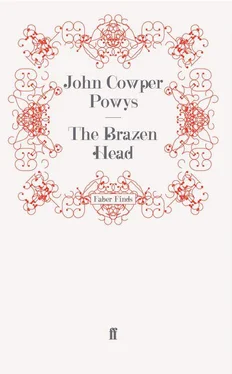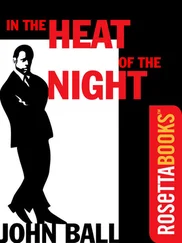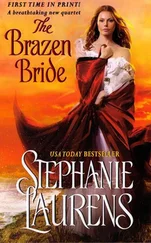It was difficult for Raymond to get the precise expression on that curly-bearded face, as Boncor, while slowly rising from his chair, turned towards him.
What increased the young man’s uncertainty on this point was the fact that the act of rising caused a spasm of pain to pass through Boncor’s wounded shoulder, and this, though largely concealed by his beard, for pain affects the mouths of certain types of men more than their eyes or foreheads, did perceptibly obscure the intimately direct look which the Baron fixed upon his friend.
“I shall go downstairs with him at once, my dear, and deal with these Red-Brown Tunics from the Towers, and have a word with Turgo. You may depend on it, my treasure, that all your rightful dignity, and all your natural lady-like feelings will be considered to the uttermost in the arrangements your old adorer makes; so don’t worry! Keep the fire up and get out some wine by the time we come up again! And have a sip yourself for a while! We shan’t be as long as, O I know so well how long you’re now imagining we’ll be! You’ll see. Thanks, Raymond.”
And all that Ulanda could now hear were the double thuddings of their feet, her husband’s considerably heavier than his friend’s, as the two men tramped down the turret stairs.
Ulanda sat still, seeing nothing but the living heart of the fire in front of her, and hearing nothing but the dark, deep, dead silence that surrounded the crackling of those burning sticks. Her thoughts were much less desperate than Raymond could possibly have imagined, as he accompanied her husband into the reception chamber on the ground floor below. To be alone always suited her; and though she knew well at the bottom of her heart that her husband would never, in spite of his encouraging words, really see to it that her longed-for revenge on Roger Bacon would be brought about, she was able, now that she was no more actually in the presence of this friendship she hated so much, to treat the whole matter, and her own feelings about it, with something approaching a philosophic mind.
And the most powerful of all the divinities with whom it is our destiny to get more acquainted the older we grow — namely, that frivolous, merciless, apparently irresponsible goddess, whose name is Tyche or Chance — did not refuse at this crisis in her life to give the passionate Ulanda the breathing-space to which any sort of humane judicial authority would have taken for granted she was entitled; for there sounded now a quite different step upon the turret stairs, a step the familiar vibration of which in place of making her sit up and prepare for action made her relax with an ineffable sense of relief.
“O Mabbernob! Do you know what has just happened to me? And for the first time too in all the days of my life? And it wasn’t because I’m a real knight either, and knighted by the King himself! You’ll never guess, Mabbernob darling, what it was! But try a moment: O do try a moment to guess, before I sit down!”
An affectionately friendly and a comfortably appreciative smile spread softly over Ulanda’s whole personality. She felt — she always felt in this manner — just exactly as when, after a second’s submerging under the waters of unconsciousness, she had first beheld this only offspring of her love for the Lord of Cone lying beside her. It had not been very long before she found herself translating a constantly repeated sequence of babyish babblement into the word “Mabbernob,” by which the little creature was designating the womb from which it came and the paps that fed it.
“Well, well,” she now replied, in an affectionately jocular tone, “Honey-Pot holy, Honey-Pot mighty, Honey-Pot washed and dressed, tell Mabbernob the whole story!”
The young knight stalked solemnly to Ulanda’s side of the big table, placed the back of a hand clutching a pair of gauntlets against his left hip, tightened his bare fingers about the handle of his sword, and tilted his chin in the air. “It was,” he announced, “as I went into the ante-room just now. There were half-a-dozen fellows there, all trick’d out in that funny red-brown stuff they wear at the Towers, stuff that when you see it at close quarters is all made of rags, rags patched together you know, like the clots and clouts of wandering beggars on the Icen Way: and what must they do the moment they saw me standing there, but rush forward, kneel down before me, stretch out their arms towards me, and cry in the sort of voice — do you remember, Mabbernob? — in which those play-acting masqueraders who came from Sicily cried, when they acted Sabine prisoners begging to have back their wives!
“But what these poor devils cried was — but do tell me this, Mabbernob, before I go on; has Father been hunting over there and catching these wretches for sport instead of badgers and foxes? — what, I say, they cried was:
“‘Be our leader, Sir William, be our leader against this wicked, hateful, abominable hell-born Friar Bacon who has devilishly been making, with all his infernal cleverness, out of tin and iron and copper and brass a real breathing, thinking human being, just exactly as if he were God, a Being, you must understand, made of Brass, a Being who predicts the end of the world, a Being who has the power not only to predict the end of the world but — think of their believing that , Mabbernob! — to bring it about! So please, please, please , Sir William,’ these poor wretches cried out, ‘consent to be our leader and help us to break into little pieces this New Man invented by this New Devil! Thou art a knight, Sir William, and here is work proper to thy knightly arms!’”
“Sit down over there in your Father’s chair, son of my heart, and you and I will discuss this whole matter as carefully as we can.”
Ulanda’s voice was so extremely quiet that her son, though he wasn’t quite the well-balanced sage he fancied himself to be, received not the faintest intimation of the seething and smouldering hurricane of feverish thoughts that was whirling in her head.
“Shall I use this child?” she asked herself. “Boncor will never go as far as I want; and these wretches have nothing to lose and everything to gain by killing this devil of a Friar! Besides if Lord Edward comes home before he’s expected and before Henry dies, he’ll be less inclined to make a fuss if it’s an excitable boy who brought about the killing of this sorcerer, and did it by the hands of this Lost Towers gang who’ve always been irresponsible outlaws.”
Thud — thud — thud —Ah! there were the steps of her bearded husband and his handsome and diplomatic young friend! As she heard these steps there was something about the image of her husband’s beard that flung new fuel on her fury. In these subtle fits of nervous rage, which most of us experience at one time or another, some particular visual image will often detach itself from its proper setting, like a scarf or a belt or a brooch or a feather from some old picture upon the wall, and fly to blend itself with the bodily target of our resentment, even partaking, though the luckless thing is in itself absolutely innocent, in the special objectionableness of the cause of our rancour.
Thus it was that several seconds before the actual appearance of the middle-aged man she loved and the young man she hated, the curly beard of the former and the clear-cut Hellenic profile of the latter rose so vividly before her mind’s eye that, in a flash of mad fury, Ulanda decided that at all costs, and in spite of all her love for the man himself, Boncor’s beard must be cut off.
The idea of a beardless Boncor did indeed so fulfil and so satisfy her wrath that, as she listened to what the two men were saying, she became actually aware, though she wouldn’t let herself enjoy that awareness, of a relaxation in the bitterness of her feelings. Something had come into her mind now that resembled a faint reflection in a sprinkling of water, by the side of a weary and unending road, along which she was riding.
Читать дальше











